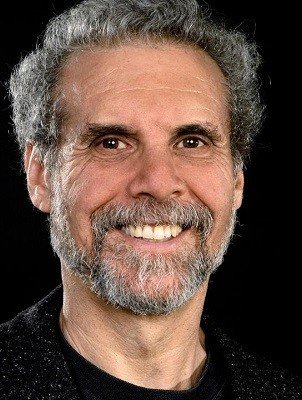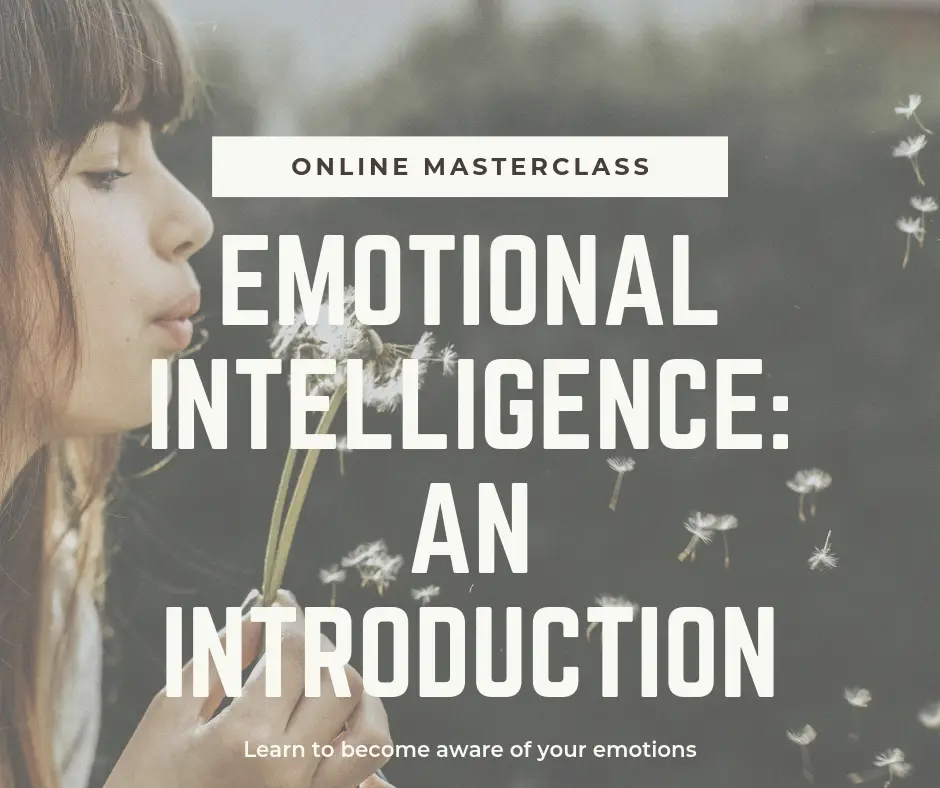
Are you emotionally intelligent?
Why emotional intelligence matters?
Imagine a world-class researcher who’s too anxious to give a lecture. Or a busy, self-made millionaire who’s desperately lonely. These people are smart, but they may lack emotional intelligence. As Daniel Goleman said, “out of control emotions can make smart people stupid”.
So, we should treat emotional intelligence (EI) with the seriousness it deserves. Studies show that people with higher EI make better leaders. They also form more satisfying relationships with friends and partners. Most importantly, emotionally intelligent people live happier lives!

What is emotional intelligence?
By now, most people have heard of this phrase, but many still don’t understand what it means to be emotionally intelligent. Contrary to popular belief, emotional intelligence is not just being nice to others. It runs much deeper than this. To be emotionally intelligent is:
1) To be aware of your emotions and other people’s.
2) To manage your behaviour and facilitate positive behaviour in others.
To be emotionally intelligent is a complete way of life. If you’ve got it, it will subtly shape every action that you take. In this way, it can bring success to multiple areas of your life.
How being more emotionally intelligent can benefit me?
Studies have shown that a high emotional quotient (or EQ) is correlated with career success, leadership skills, better health, relationship satisfaction, humour, and happiness.
It is also the best antidote to work stress and it matters in every job — because all jobs involve dealing with people, and people with higher EQ are more rewarding to deal with.
BENEFITS:
- Confidence: Feeling equipped to deal with a range of emotions that may arise day to day will help boost our confidence.
- Better Relationships: Practicing flexibility, tolerance, understanding and acceptance will help relationships to grow and flourish.
- Respect from Others: Acting with thoughtfulness, honesty and empathy will encourage others to enjoy spending time with you.
- Success at Work: An ability to practice effective teamwork, good communication skills and be proactive should help you thrive in a work environment.
KEY QUALITIES THAT YOU CAN DEVELOP:
Self-Awareness + Regulation
Social Skills
Sensitivity + Empathy
- Managing your own emotions: The ability to recognise your emotional triggers. Understanding what motivates and drives you and what your values are.
- Social Skills: Building rapport and trust with others, having good communication skills. Having the ability to manage relationships and make others feel at ease.
- Recognising moods: Appreciating that more may be going on below the surface, taking on board the situations of others. Understanding different behaviour styles, allowing for different perspectives, asking questions and listening.




Emotional Intelligence can be trained!
The good news is, emotional intelligence is something we can develop. Think of emotional intelligence as a set of tools we can use to build (and maintain) success. Indeed, if you’re feeling frustrated or unfulfilled, you may benefit from EI training.
You can learn how to interact more effectively with other people and with your own emotions.
To help you improve your EQ, we created the“Emotional Intelligence – Online Workshop”
angle-down
WHAT WILL YOU GET:
- check2 hours of video with a qualified Psychologist
- checkAnimations that enrich the learning experience
- checkWorkbook and Exercises
- A comprehensive 99 page PowerPoint presentation
- 21 day action plan
- Exclusive Facebook group access with peer support
- Have your questions answered by a qualified Psychologist in our Facebook Group
Start becoming more emotionally intelligent with our training course.
Course Syllabus:
1)What is Emotional Intelligence?
What EI is notTools to support EIThe difference between emotional intelligence and being cleverIntroduction to emotionsWhy we tend to lack emotional intelligenceThe key qualities of being emotionally intelligentWhy we need itHow it benefits us
2) Emotions + Why We Have Them:
The evolution of emotions through theories: (Maslow, Charles Darwin, James Gross)
Knowing your Brain
Getting hooked
Emotional agility
Thinking fast and slow
3) Self-Awareness – becoming in touch with our emotions:
Why we label emotionsHow to identify emotions What emotional signals meanThe purpose of emotionsMindfulnessHow to be mindful, without meditation
4) Understanding Emotional Influences
The role of our pastThe influence of worries and anxietyThe role of values and needsAutomatic coping mechanisms Attachment stylesHow we respond as adults
5) Emotional Self-Management
An introduction to emotional agilityThe 4 steps to emotional agilityBenefits of being emotionally flexible Strategies to manage emotionsPractical exercises to manage emotionsManaging other people’s emotions
6) Relating To & Understanding Others
Social awarenessWhat empathy is and why it’s relevant to emotional intelligenceEmotional responsibilityReducing judgementIdentifying the emotions of othersBeing a good listener
7) Managing Relationships
Communication strategiesThe power of nonverbal communicationReading body language communicationManaging conflictAssertiveness stylesHow to be assertive
Start Your Free,No Risk, 30-Day Trial!
Try it and see for yourself. If the course is not for you, you can get a full refund.
![]()
![]()
![]()
£49
+
VAT
or $59.00 (exchange rate may vary)
You can watch the first lecture for free:
Just leave your email below:


Joanna Rodriguez
Psychologist and CBT Therapist
About the Instructor
Joanna is a Psychologist and CBT Therapist (HCPC and BABCP accredited). She has over 10 years of practical experience working within a variety of NHS and private settings. As a CBT therapist, Joanna works with people suffering from a variety of life stresses and mental health difficulties, including depression, panic, OCD, anxiety, phobias, PTSD, relationship difficulties, work related stress etc. As a Health Psychologist, Joanna also works with people experiencing long-term persistent pain and other chronic physical health conditions, using psychological approaches to offer more holistic condition management.


About us
MindOwl is a London-based startup which is dedicated to offering high quality online training in emotional intelligence. Our philosophy of education is different from the standard approach – we take a softer approach, focusing on how to better understand your own mind and emotions.
We have carefully curated the best learning tools and latest insights from the realm of psychology to help you to improve your life and to help you live your life to the full without the restraint imposed by difficult feelings and emotional challenges.


100% Satisfaction Guarantee!
You are fully protected by our 100% Satisfaction-Guarantee. If you don’t think you benefited from our workshop over the next 30 days, just let us know and we’ll send you a prompt refund.
What the experts say:
“Emotional Intelligence is a way of recognising, understanding, and choosing how we think, feel, and act. It shapes our interactions with others and our understanding of ourselves. It defines how and what we learn; it allows us to set priorities; it determines the majority of our daily actions. Research suggests it is responsible for as much as 80% of the “success” in our lives.”


JOSHUA FREEDMAN
Author
“What really matters for success, character, happiness and life long achievements is a definite set of emotional skills – your EQ — not just purely cognitive abilities that are measured by conventional IQ tests.”


DANIEL GOLEMAN
Psychologist and Writer
“In the last decade or so, science has discovered a tremendous amount about the role emotions play in our lives. Researchers have found that even more than IQ, your emotional awareness and abilities to handle feelings will determine our success and happiness in all walks of life, including family relationships.”


JOHN GOTTMAN
Psychologist




RECAP OF WHAT YOU WILL GET IF YOU SUBSCRIBE TO OUR COURSE:
- 12 hours of video with a qualified Psychologist.
- 2Be part of our brand new community of like-minded people wanting to improve their lives and relationships.
- 3Workbook and Exercises that help you put theory into practice.
- 4Have your questions answered by a qualified Psychologist in our Facebook Group.


Start Your Free, No Risk, 30-Day Trial!
Be part of our brand new community today
![]()
![]()
![]()
£49
+
VAT
or $59.00 (exchange rate may vary)
You can watch the first lecture for free:
Just leave your email below
“Emotional competence is the single most important personal quality that each of us must develop and access to experience a breakthrough. Only through managing our emotions can we access our intellect and our technical competence. An emotionally competent person performs better under pressure.” – Dave Lennick, Executive VP, American Express Financial Advisers
P.S.: Don’t let emotions get in the way of living a rich and meanigful life. Start investing in your emotional intelligence education today
Psychologists accredited by:


Project sponsored by:


Copyright 2019, Mindowl Education LTD – Disclaimer

